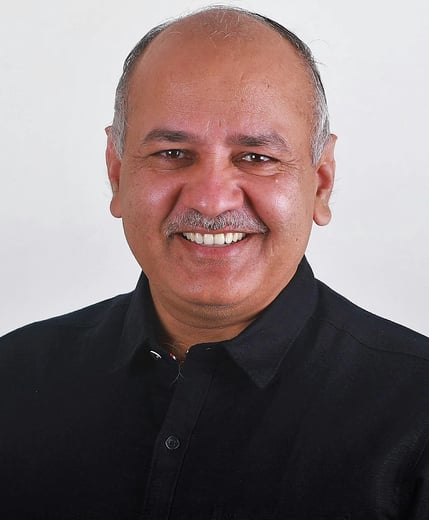"Delhi Liquor Scam: Manish Sisodia's Bail Pleas Dismissed by Supreme Court | Unraveling the Controversial Excise Policy"
"A Deep Dive into the Delhi Liquor Policy Scam -Scandal and Policy Reforms That Sparked Controversy"
Martand Pratap Singh.
10/30/20233 min read


The recent turn of events in the Delhi liquor scam case has kept the spotlight firmly fixed on former Deputy Chief Minister, Manish Sisodia, whose bail pleas were vehemently dismissed by the Supreme Court on October 30. The high-profile case, entwined with accusations of corruption and money laundering, has stirred widespread debates on the intricacies of the scandal and the controversial excise policy.
The Supreme Court's denial of bail to the Aam Aadmi Party (AAP) leader, Manish Sisodia, was a critical development in the ongoing legal battle. The court's decision, following a comprehensive review on October 17, left the nation questioning the complexities of the Prevention of Money Laundering Act (PMLA) and the lack of bribery charges against Sisodia. Senior advocate Abhishek Manu Singhvi's representation of Sisodia during the proceedings added an additional layer of legal nuance to the high-profile case.
Decoding the Delhi Liquor Policy Scam: Unraveling Controversies and Reforms"
The intricate layers of the scandal trace back to the Delhi excise policy and its subsequent annulment in the wake of mounting corruption allegations. The policy, initiated in November 2021, was designed to revolutionize the liquor trade in the region. However, what was intended as a reformative step soon escalated into a quagmire of malpractices and alleged financial misconduct.
The proposed Delhi Excise Policy 2021-22 aimed to overhaul the existing liquor trade dynamics by ushering in a wave of transformative changes. Under this policy, the city was demarcated into 32 zones, each housing 27 liquor vends, with a core focus on eradicating the liquor mafia, enhancing revenue, ensuring equitable distribution, and improving the consumer experience. Additionally, the policy marked a significant departure from the government's direct involvement in liquor sales, paving the way for private liquor shops to operate under a more flexible regulatory framework.
Despite its ambitious objectives, the policy encountered a series of roadblocks, with controversies surrounding discounts offered by vendors and subsequent protests from the opposition. The sudden withdrawal of these discounts only served to amplify the already burgeoning criticism. Moreover, the reported 27% surge in revenue generated by the government following the implementation of the new policy further underscored the magnitude of the scandal.
The Central Bureau of Investigation's (CBI) intensive investigation into the Delhi excise policy implicated several high-profile individuals, with Manish Sisodia at the forefront of the accusations. The FIR filed by the CBI alleged various malpractices, including the issuance of credit notes to retail vendors, aimed at diverting funds and yielding undue benefits to public servants, while maintaining false entries in their accounting records.
The involvement of the Delhi Police Economic Offences Wing (EOW) added another layer of complexity to the case. As the proposed policy changes came under the scrutiny of the Chief Secretary, concerns regarding procedural lapses and irregularities surfaced, prompting the EOW's intervention. The Chief Secretary's subsequent report highlighted unauthorized alterations made to the excise policy without the approval of the Lieutenant Governor, signaling potential legal violations and a breach of established regulatory protocols.
Allegations against Sisodia ranged from unapproved waivers in license fees to the revision of foreign liquor rates, ultimately leading to revenue losses for the state exchequer. The report highlighted the necessity for policy amendments to follow a structured approval process involving the cabinet and the Lieutenant Governor, citing violations of the Delhi Excise Rules, 2010, and the Transaction of Business Rules, 1993.
The Delhi liquor scam and the subsequent legal battles have exposed critical fissures within the regulatory framework governing the city's excise policies. While the denial of bail to Manish Sisodia has marked a crucial milestone in the judicial proceedings, the overarching scandal underscores the necessity for robust governance and stringent oversight in the realm of liquor trade and policy implementation. As the case continues to unfold, it stands as a stark reminder of the imperative need for transparency and accountability within the corridors of power.
This comprehensive examination of the Delhi liquor scam and the subsequent denial of bail to Manish Sisodia encapsulates the intricate web of political, legal, and regulatory intricacies that have come to define this high-profile case. As the nation awaits further developments, the scandal serves as a cautionary tale, prompting a reevaluation of governance structures and policy frameworks to curb malpractices and ensure the integrity of public officeholders

CONTACT US!
Contacts
+917065700003
martand@thearambha.com
